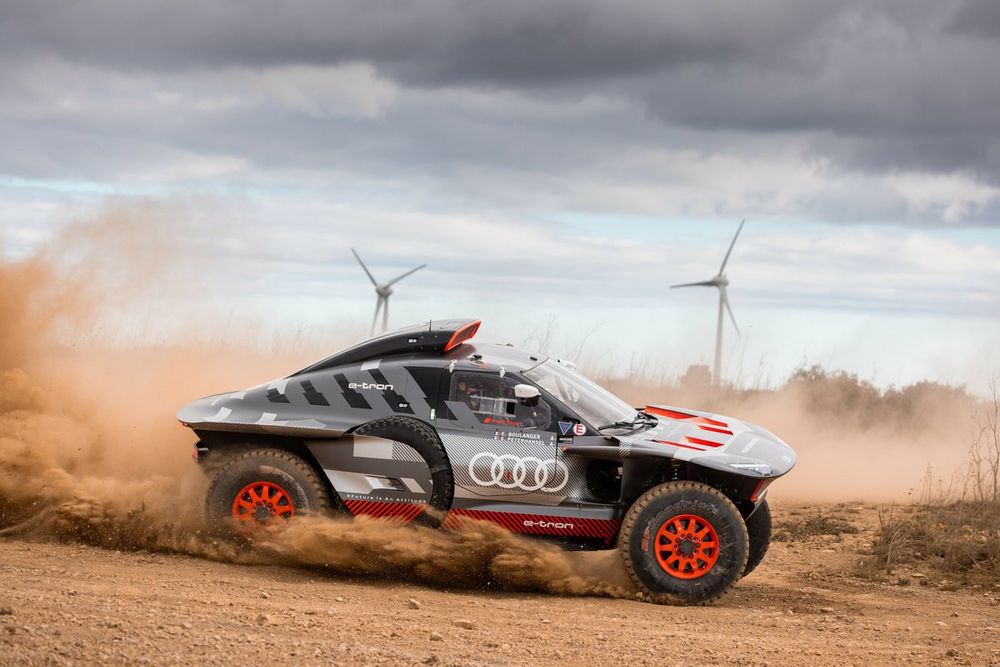The 45th edition of Dakar begins on 5 January and Audi will once again line up at Al-’Ula with a fleet of three cars, as it aims to become the first manufacturer to win the overall cars category with an electric-powered car.
Audi has gone to great lengths to improve the RS Q e-tron, despite its upcoming Formula 1 project with Sauber taking some resources away from its rally-raid programme.
Changes have been made in nearly every aspect, with the driver line-up the only that has remained stable in 2024 with Stephane Peterhansel, Carlos Sainz and Mattias Ekstrom all returning for another crack at the marathon.
“The fundamental capabilities of the RS Q e-tron have been demonstrated by our drivers and co-drivers with six stage victories and a further 22 podiums in the Dakar Rally since 2022,” said Rolf Michl, Head of Audi Motorsport. “Now it’s about showing our performances as consistently as possible, so that we can fight for the top positions.”
Audi Sport has analysed previous performances, identified weak points and set clear priorities for further development. Leonardo Pascali, the project’s new Technical Director, has been focusing on five key topics with his development team since the beginning of the summer.
Performance
To improve the performance, Audi has revised almost all components of the car, from the software to the chassis and from the bodywork to the transmission. After last year’s Dakar, the drivers had asked for more freedom on the set-up to improve the balance of the car. To meet this request, Audi’s development team worked on springs and shock absorbers for 2024.
That’s not all, because the RS Q e-tron has undergone a significant weight-trimming exercise in every component to get closer to the minimum limit of 2,100kg. That is despite the new competition tyres being heavier than their predecessors.
Audi has also worked on the rear bonnet, the co-driver’s platform as well as the brake calipers, which have become smaller than last year.
As per regulations, the minimum weight of T1 cars (the Toyota GR Hilux, for example) will increase to 2,010kg, making the RS Q e-tron more competitive in comparison.
The power-to-weight ratio of Audi’s T1U cars compared to the T1s has also been changed. While at the beginning of 2023 the maximum power of electric motors was set at 271kW, it will increase to 286kW this year, a bump of 15kW.
Photo by: Audi Communications Motorsport
Audi RS Q e-tron
Reliability
The…
Click Here to Read the Full Original Article at Motorsport.com – RALLY – Stories…

